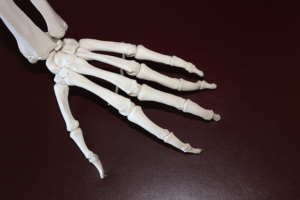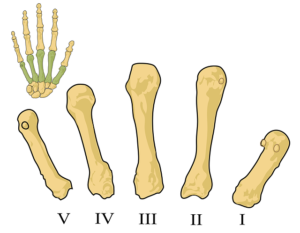Rheumatoid arthritis in the neck: Symptoms and management – Medical News Today
Rheumatoid arthritis (RA) is an autoimmune condition that causes inflammation of the joints and can affect the neck.
According to a 2018 literature review, a person will rarely experience RA symptoms in the neck in the early stages of the condition.
In this article,…….

Rheumatoid arthritis (RA) is an autoimmune condition that causes inflammation of the joints and can affect the neck.
According to a 2018 literature review, a person will rarely experience RA symptoms in the neck in the early stages of the condition.
In this article, we look at how RA affects the neck. We also discuss the symptoms, diagnosis, and treatment options for rheumatoid arthritis.
RA is an inflammatory arthritis. The immune system attacks the lining of joints, called the synovium, causing inflammation.
The top two vertebrae in the spine, known as C1 and C2, are joints lined with synovium. This means that RA can affect this part of the spine.
RA usually affects smaller joints first, such as those in the hands. As the condition progresses, it can affect other areas of the body, including the cervical spine, or neck. This can cause pain, stiffness, and restricted movement.
While RA in the neck is rare in the first stages of RA, it can occur in 80% of long-term cases. Males and people who test positive for rheumatoid factor antibodies have a higher chance of developing RA in the neck.
According to a 2015 review, the symptoms of RA in the neck are varied, and 33% to 50% of people may experience no symptoms.
However, one of the most common symptoms is neck pain, which can range in severity. The American Academy of Orthopaedic Surgeons notes that this pain can worsen if a person sits in the same position for prolonged periods of time.
RA symptoms are usually worse in the morning and after periods of inactivity.
Other symptoms of RA in the neck can include:
- a dull or throbbing ache at the base of the skull or the back of the neck
- swelling or stiffness in the neck, which may make it difficult to move the neck
- headaches
- neck and shoulder muscle spasms
- a grinding sensation or popping noise when turning the neck
- difficulty walking
- weakness in the hands or legs
- a loss of balance
- dizziness
A person may also experience ear or temporal pain if a nerve, called the greater auricular nerve, becomes compressed.
Rheumatoid arthritis in the neck can also lead to two types of symptoms called radiculopathy and myelopathy.
Radiculopathy occurs due to pressure on the spinal nerve root. This can result in weakness, numbness, pain, and electrical …….
Source: https://www.medicalnewstoday.com/articles/rheumatoid-arthritis-in-the-neck







